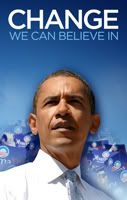Our congressional neighbors, Joe Barton (R-TX) and Michael Burgess (R-TX) were involved in a parliamentary lambasting by the acting Speaker of their House session, Barney Frank (D-MA) . Patrick McHenry (R-NC) was the main culprit in all of this, but it is a good example of why a representative might want to learn Robert's Rules of Order before attempting to work a debate. And just remember the past actions of the chair do not matter! :-) Watch the video by clicking here.
Now we all know Barney Frank isn't known for being shy about stating his mind, (and a first-rate mind at that) but there's a little backstory that you should be aware of when you watch this that goes a long way toward explaining the, well, let's say relish, with which he dishes out this particular parliamentary lesson.
You see, before the Democrats took over Congress, the Republicans had made a mockery of parliamentary rule. From the Rolling Stone's article, The Worst Congress Ever....
.....The Republicans who control this Congress are revolutionaries, and they have brought their revolutionary vision for the House and Senate quite unpleasantly to fruition. In the past six years they have castrated the political minority..... They aimed far lower than any other Congress has ever aimed, and they nailed their target.
In one legendary incident, Rep. Charles Rangel went searching for a secret conference being held by Thomas. When he found the room where Republicans closeted themselves, he knocked and knocked on the door, but no one answered. A House aide compares the scene to the famous "Land Shark" skit from Saturday Night Live, with everyone hiding behind the door afraid to make a sound. "Rangel was the land shark, I guess," the aide jokes. But the real punch line came when Thomas finally opened the door. "This meeting," he informed Rangel, "is only open to the coalition of the willing."
The measure was originally crafted in classic bipartisan fashion in the Judiciary Committee, where it passed by a vote of thirty-six to zero, with famed liberals like Barney Frank and Jerrold Nadler saying aye. But when the bill was sent to the Rules Committee, the Republicans simply chucked the approved bill and replaced it with a new, far more repressive version, apparently written at the direction of then-Attorney General John Ashcroft.
"They just rewrote the whole bill," says Rep. James McGovern, a minority member of the Rules Committee. "All that committee work was just for show."
So the next time you see Pete Sessions or Joe Barton whining about how unfair it is that the minority party can't offer an amendment on the floor of the house, or some other criticism about the current rules of debate, remember who wrote the playbook.To ensure that Democrats can't alter any of the last-minute changes, Republicans have overseen a monstrous increase in the number of "closed" rules -- bills that go to the floor for a vote without any possibility of amendment. This tactic undercuts the very essence of democracy: In a bicameral system, allowing bills to be debated openly is the only way that the minority can have a real impact, by offering amendments to legislation drafted by the majority.In 1977, when Democrats held a majority in the House, eighty-five percent of all bills were open to amendment. But by 1994, the last year Democrats ran the House, that number had dropped to thirty percent -- and Republicans were seriously pissed. "You know what the closed rule means," Rep. Lincoln Diaz-Balart of Florida thundered on the House floor. "It means no discussion, no amendments. That is profoundly undemocratic." When Republicans took control of the House, they vowed to throw off the gag rules imposed by Democrats. On opening day of the 104th Congress, then-Rules Committee chairman Gerald Solomon announced his intention to institute free debate on the floor. "Instead of having seventy percent closed rules," he declared, "we are going to have seventy percent open and unrestricted rules."
How has Solomon fared? Of the 111 rules introduced in the first session of this Congress, only twelve were open. Of those, eleven were appropriations bills, which are traditionally open. That left just one open vote -- H. Res. 255, the Federal Deposit Insurance Reform Act of 2005.
In the second session of this Congress? Not a single open rule, outside of appropriation votes. Under the Republicans, amendable bills have been a genuine Washington rarity, the upside-down eight-leafed clover of legislative politics.







1 comment:
I watched the video and I think it's pretty funny... not to gloat or anything, but after the way they treated Democrats when they were in the minority, I don't know why they expect anything nobler when they've been delegated to the minority role.
Post a Comment